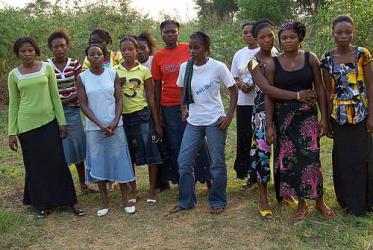Displaying 81 - 100 of 110
Everyone urged to join Zero Hunger Challenge
29 June 2015
Youth promise active involvement for environmental justice
14 December 2011
IEPC plans practical approach to peace
28 August 2009
Global finances can and must change - here's how
12 February 2009
Global food crisis has a spiritual dimension, says Kobia
24 November 2008
Wars in Sierra Leone and Liberia are over, peace-building is not
12 November 2008
Despite poverty, seeds of hope bud in Indonesia
07 August 2008
In the shadow of the dam, communities long for water
09 June 2008















